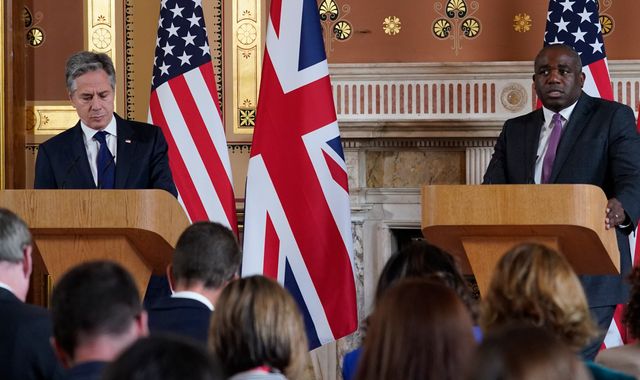The European Union and the United Kingdom have announced a fresh round of sanctions against Iran, targeting individuals and entities accused of providing military support to Russia during its ongoing conflict in Ukraine. The measures, unveiled on Tuesday, underscore growing international concerns over Tehran’s role in bolstering Moscow’s war efforts.
Details of the Sanctions
The EU’s sanctions blacklist has expanded to include key Iranian figures and organizations involved in supplying weapons and technology to Russia. Among those targeted are individuals linked to the manufacturing and export of Shahed drones, which have been widely used by Russian forces in attacks on Ukrainian infrastructure and civilian areas.
The UK has similarly tightened its restrictions, focusing on Iran’s arms industry and financial networks allegedly tied to drone production and delivery. The sanctions include asset freezes, travel bans, and restrictions on economic activity.
EU’s Statement
Josep Borrell, the EU’s High Representative for Foreign Affairs, stated, “Iran’s continued support for Russia’s aggression in Ukraine is unacceptable. These sanctions send a clear message: those who enable war and human suffering will face consequences.”
UK’s Position
British Foreign Secretary James Cleverly condemned Iran’s actions, noting that the UK’s measures are aimed at disrupting the flow of weapons and technologies that are prolonging the conflict in Ukraine. Cleverly remarked, “Iran’s support for Russia is not only destabilizing Ukraine but also undermining global security.”
Iran’s Response
Iran has consistently denied allegations of supplying drones and military equipment to Russia for use in Ukraine, dismissing the claims as politically motivated. Tehran argues that its cooperation with Moscow is in line with international laws and unrelated to the war.
These new sanctions come amid a broader international effort to isolate Iran for its expanding ties with Russia, particularly in military cooperation. Analysts warn that Tehran’s alignment with Moscow could deepen existing geopolitical divides, complicating efforts to address other global challenges, such as nuclear proliferation and regional stability in the Middle East.
The sanctions reflect a growing frustration among Western nations over perceived loopholes in the enforcement of previous measures, as both Russia and Iran continue to strengthen their strategic partnership.
This move by the EU and UK aligns with ongoing U.S. efforts to penalize Iran and Russia for their actions, highlighting a coordinated Western approach to counter perceived threats to international stability.

